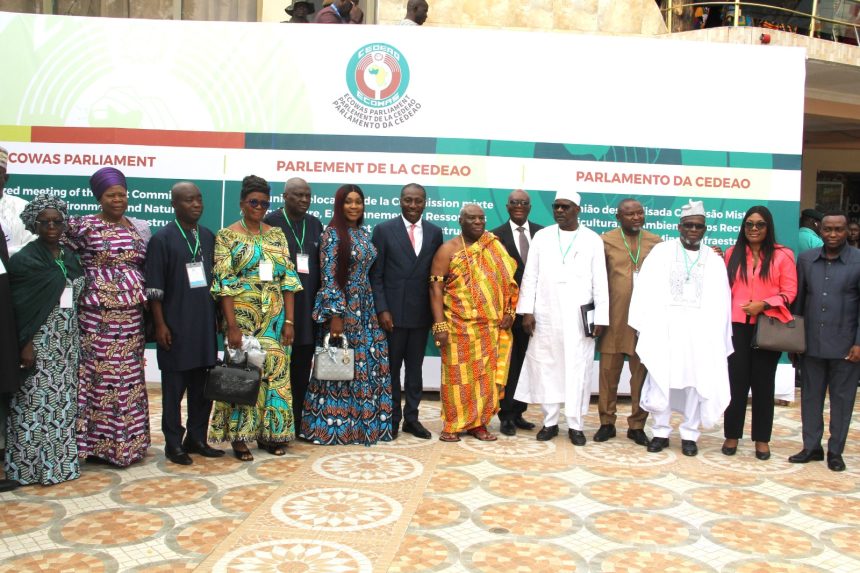By Linus Aleke, Abuja
The Community Parliament of the Economic Community of West African States (ECOWAS), has called for urgent and collective actions to address the menace of poor management of plastic wastes in West Africa,
ECOWAS Parliament, also noted that the proliferation of non-biodegradable wastes like plastic and nylon bags have been fueled in recent times by rapid urbanization and population growth coupled with increased consumption patterns and packaging.
The Speaker of the Ghanaian Parliament, Hon. Alban Sumana Kingsford Bagbin, made this call, while addressing ECOWAS MPs at the ongoing delocalized meeting of the Joint Committee on Agriculture, Environment and Natural Resources/Energy, Mining/Infrastructure of the Parliament of the Economic Community of West African States (ECOWAS) holding in Winneba, Ghana.
Hon. Bagbin recalled that in 2020, plastic consumption across West African coastal countries was estimated at 7.9 million tons and projected to rise to 12 million tons by 2026.
He however, added that only 20 per cent of the non-biodegradable wastes were recycled or well-managed, leaving 80 per cent unaccounted for. This, he warned, was a ticking time bomb, which must be addressed immediately to avert imminent disaster.
He further identified several challenges that had hindered effective plastic waste management to include limited infrastructure, poor public awareness, weak policy implementation and economic constraints.
He noted that poor management of non-biodegradable wastes have become one of the most pressing global environmental problems, particularly among the Economic Community of West African States (ECOWAS).
He admonished the community on the need for collective action, saying, “We must share knowledge, experiences and best practices to overcome these challenges and champion the adoption of common regional standards.”
Bagbin also stressed the importance of collaboration, public-private partnerships and community engagement in addressing the plastic waste menace.
While declaring the four-day meeting opened, he encouraged participants to adopt a problem-solving approach guided by the three pillars of sustainable development: economic viability, environmental friendliness and social acceptability.
The meeting, which brought together members of the Committee on Agriculture, Environment and Natural Resources, the Committee on Mines and Energy and the Committee on Infrastructure, aims to find solutions to the growing problem of plastic waste in West Africa.
It is expected to produce a comprehensive plan, including strategies for reducing plastic waste generation, improving waste management infrastructure, and promoting sustainable practices.
The theme of the meeting is, “Plastic Waste Management: Challenges and Prospects in Implementing Community Policy”.











